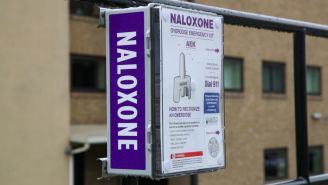Sometimes, when a person has a problem with drugs or alcohol, it’s easy for them to recognize the signs. They may spot the physical symptoms or mental health issues. They may see that it’s affecting their day-to-day function or relationships with others. Or they find themselves drinking more or using increasing amounts of drugs to get the same effect.
But in many cases, people don't recognize the signs of drug or alcohol addiction at all.
How is that possible? Brain damage from addiction may actually make it that much more difficult to realize you have a problem, says Joel Holiner, MD, an addiction psychiatrist based in Dallas, Texas. “We know that taking alcohol and drugs affects the frontal cortex of the brain and even the limbic region, which could affect judgment, impulse control, problem-solving issues, and even memory,” he says.
The signs of addiction
There are many different indications of possible substance abuse. If you think you may be abusing drugs or alcohol, or are worried about a friend, look for these addiction warning signs:
Loss of control: People with substance use disorders consume more alcohol or drugs than they intend to, and will continue using even though it may cause problems in their jobs, at school, with their health, or in relationships.
Secrecy and social withdrawal: People with substance use disorders may hide their drugs or alcohol use, as well as withdraw from family and friends or other social interactions.
Change in personality and appearance: People with substance use disorders may take more risks than normal or quit their favorite hobbies or activities in favor of drugs or alcohol. They may skip showers, wear dirty clothes, or stop caring about how they look.
Mood swings or depression: Feelings of anxiety, frustration, anger, bitterness and depression, as well as a bad temper, are common in people with substance use disorders.
Blackouts or memory loss: A person may have an addiction if they regularly forget things or experience blackouts.
Higher tolerance: People with substance use disorders tend to consume more and more to get the feeling they’re craving. At times they may need far more than they originally intended.
How to get treatment for substance abuse
“If you think you are an addict, the first step is realizing you have a problem and being willing to get help,” Dr. Holiner says. Surround yourself with friends and family who will support your new lifestyle, and make sure your daily routines eliminate temptations. “If you were in a pattern of stopping by a convenience store on your way home from work and getting a six-pack every night, you need to change your route,” says Holiner.
While substance abuse treatment is not one-size-fits-all, all plans do emphasize one thing: talking it out. The road to recovery usually involves a combination of the following:
- Psychotherapy: One-on-one or family therapy sessions can help people cope with cravings and handle possible relapses.
- Self-help groups: Groups like Alcoholics Anonymous (AA) and Narcotics Anonymous (NA) help people with substance use disorders talk through their issues with people experiencing the same problems.
- Individual sponsors: Many people involved with AA or NA choose to pair with an individual sponsor that serves as a confidant and mentor during the recovery process.
- Treatment programs: Inpatient and outpatient rehab programs help people with substance use disorders focus on getting sober through individual or group sessions, depending on the severity of the addiction.
If you’re still having problems with withdrawal, cravings, or depression, you may need non-addictive medication to help you quit for good, says Holiner. Seek help from a healthcare provider to create a treatment plan that works best for you.






